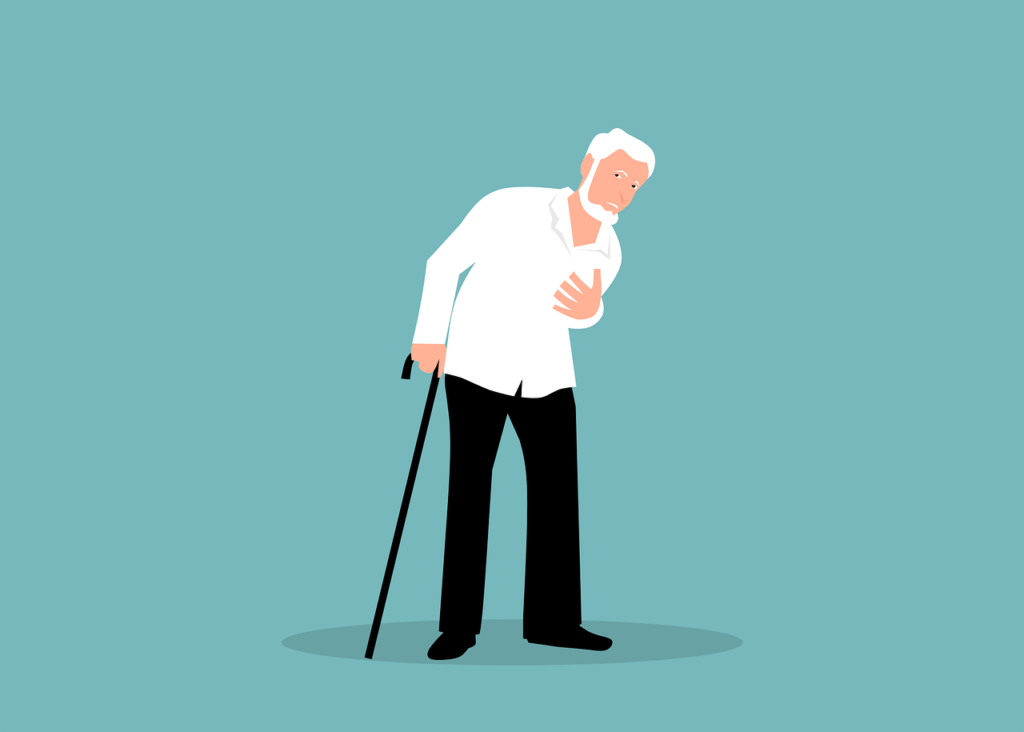Heart Disease Prevention Strategies for Seniors: Staying Healthy and Happy
Contents
- 1 Heart Disease Prevention Strategies for Seniors: Staying Healthy and Happy
- 1.1 Introduction:
- 1.2 Heart Disease Prevention Strategies for Seniors
- 1.2.1 Understanding Heart Disease
- 1.2.2 1. Regular Medical Check-ups
- 1.2.3 2. Balanced and Nutrient-rich Diet
- 1.2.4 3. Stay Active
- 1.2.5 4. Manage Stress
- 1.2.6 5. Adequate Sleep
- 1.2.7 6. Limit Alcohol and Avoid Smoking
- 1.2.8 7. Maintain a Healthy Weight
- 1.2.9 8. Monitor Blood Pressure and Cholesterol
- 1.2.10 9. Stay Hydrated
- 1.2.11 10. Socialize and Stay Engaged
- 1.2.12 11. Power of Laughter
- 1.2.13 12. Incorporate Heart-Healthy Supplements
- 1.2.14 13. Regular Health Screenings
- 1.2.15 14. Mindful Eating
- 1.2.16 15. Strong Relationships
- 1.2.17 16. Volunteer Activities
- 1.2.18 17. Limit Processed Foods
- 1.2.19 18. Regular Dental Care
- 1.2.20 19. Learn Stress Management
- 1.2.21 20. Stay Informed
- 1.3 FAQs
- 1.3.1 Can heart disease be prevented entirely?
- 1.3.2 Is it too late to start preventive measures if I’m already a senior?
- 1.3.3 Can I continue to enjoy my favorite foods while following a heart-healthy diet?
- 1.3.4 How can I motivate myself to exercise regularly?
- 1.3.5 Are there any specific supplements that seniors should consider for heart health?
- 1.3.6 Can socializing really impact heart health?
- 1.4
- 1.5 Conclusion
Read DISCLAIMER
Learn heart disease preventive techniques for seniors to keep up an active and healthy lifestyle. Find out from experts what you can do to lower your chance of developing heart problems as you age.

Introduction:
Prioritizing our cardiovascular health becomes more crucial as we become older. Seniors are frequently concerned about heart disease, but the good news is that the risk may be considerably reduced by a variety of lifestyle choices and tactics. We will examine practical suggestions and knowledgeable viewpoints on senior heart disease preventive techniques in this in-depth study. Everything you need to know to live a heart-healthy life will be covered, including food suggestions and exercise regimens.
Heart Disease Prevention Strategies for Seniors
It need not be challenging to maintain heart health as you age. You may improve your well-being and live life to the fullest by using these tactics and making them a regular part of your routine.
Understanding Heart Disease
It’s crucial to have a fundamental grasp of heart disease before getting into preventative methods. Cardiovascular disease, another name for heart disease, refers to a wide range of disorders that have an impact on the heart and blood arteries. Heart failure, arrhythmias, coronary artery disease, and other disorders might be among them. Seniors are more vulnerable because of things like advanced age, a decline in physical activity, and other medical issues.

1. Regular Medical Check-ups
For the early diagnosis and management of any heart-related disorders, regular doctor visits are essential. Monitoring of blood pressure, cholesterol levels, and other critical indicators is possible thanks to these examinations. During these appointments, be careful to bring up your family history and any potential issues.
2. Balanced and Nutrient-rich Diet
An important factor in avoiding heart disease is maintaining a heart-healthy diet. Consume more fresh produce, whole grains, lean meats, and healthy fats. Reduce your consumption of processed meals, sweet snacks, and too much salt. Think about adopting the Mediterranean diet, which is high in heart-healthy omega-3 fatty acids and antioxidants.
3. Stay Active
One of the most effective strategies to keep your heart healthy is to exercise regularly. Get moving by swimming, cycling, dancing, or even just brisk walking. Strive for 75 minutes of intense physical activity or a minimum of 150 minutes of moderate exercise each week.
4. Manage Stress
Heart health may suffer from prolonged stress. Use stress-reduction strategies including yoga, deep breathing exercises, and meditation. Spending time with loved ones, engaging in hobbies, and engaging in mindfulness exercises can all help you relax.

5. Adequate Sleep
For general well-being, including heart health, quality sleep is crucial. Sleep for 7-9 hours each night, undisturbed. Hypertension and other cardiovascular problems might result from poor sleep habits.
6. Limit Alcohol and Avoid Smoking
Smoking and excessive alcohol intake are bad for your heart. If you decide to drink, do so sparingly. One of the finest things you can do for your heart and general health is to stop smoking.

7. Maintain a Healthy Weight
Obesity or being overweight raises the risk of heart disease. To reach and keep a healthy weight, adopt a balanced diet and a regular exercise schedule. A healthcare expert should be consulted for specific advice.
8. Monitor Blood Pressure and Cholesterol
Both high blood pressure and high cholesterol are significant heart disease risk factors. Keep track of these figures and heed your doctor’s advice for optimum management.
9. Stay Hydrated
By preserving blood viscosity and circulation, proper hydration promotes heart health. Consume hydrating meals like fruits and vegetables and lots of water throughout the day.
10. Socialize and Stay Engaged
Strong social ties and continued mental activity are associated with improved heart health. Participate in group events, explore hobbies, and use your brain by solving sudoku puzzles or picking up new skills.
11. Power of Laughter
True heart health comes from laughter! It improves blood flow, relaxes blood vessels, and lessens tension. Spend time with friends who make you laugh, take in a comedy event, and adopt a cheerful attitude about life.
12. Incorporate Heart-Healthy Supplements
Before including any supplements in your regimen, talk to your doctor. Magnesium, CoQ10, and omega-3 fatty acids are a few of the nutrients that might help heart health.
13. Regular Health Screenings
Make sure you have frequent testing for diabetes, renal function, and other disorders that might affect heart health in addition to those for the heart.

14. Mindful Eating
By enjoying each meal and being attentive of your hunger and fullness indicators, you may practice mindful eating. This can discourage overeating and encourage sound digestion.
15. Strong Relationships
Positive connections ease stress and offer emotional support. Develop enduring relationships with your family, friends, and neighbors.
16. Volunteer Activities
Volunteering has a good effect on heart health, self-esteem, and gives people a sense of purpose.
17. Limit Processed Foods
Processed foods are often high in trans fats, sodium, and added sugars. Opt for whole, unprocessed foods whenever possible.

18. Regular Dental Care
Unbelievably, there is a link between heart health and mouth health. Inflammation, which is connected to cardiovascular problems, can be exacerbated by poor dental hygiene.
19. Learn Stress Management
Techniques for managing stress that are effective include gradual muscle relaxation, visualization, and deep breathing exercises.
20. Stay Informed
Keep abreast on the most recent advancements in heart health and preventative techniques. Knowing more enables you to make wise selections.
FAQs
Can heart disease be prevented entirely?
While heart disease cannot be completely eliminated, adopting a healthy lifestyle can significantly reduce the risk of developing heart-related issues.
Is it too late to start preventive measures if I’m already a senior?
It’s never too late to prioritize your heart health. Seniors can still benefit from adopting heart disease prevention strategies, improving their overall well-being.
Can I continue to enjoy my favorite foods while following a heart-healthy diet?
Yes, moderation is key. You can still indulge in your favorite treats occasionally while focusing on a balanced and nutrient-rich diet.
How can I motivate myself to exercise regularly?
Find physical activities that you genuinely enjoy, whether it’s dancing, gardening, or walking in nature. Enlist a friend or family member to join you for added motivation.
Are there any specific supplements that seniors should consider for heart health?
Omega-3 fatty acids, CoQ10, and magnesium are commonly considered heart-healthy supplements for seniors. However, consult your healthcare provider before adding any new supplements to your routine.
Absolutely. Meaningful social connections have been shown to reduce stress and positively influence heart health. Engage in social activities that bring you joy and connection.
Conclusion
Setting heart disease preventive techniques as a top priority is a proactive and powerful move toward preserving a full and active senior life. You may dramatically lower your chance of developing heart-related problems by making informed decisions about your food, exercise routine, stress management, and other lifestyle variables. Never forget that you may still take charge of your heart health and live out your golden years with vigor and excitement.

Your point of view caught my eye and was very interesting. Thanks. I have a question for you. https://accounts.binance.com/en-IN/register-person?ref=UM6SMJM3
Thank you for your sharing. I am worried that I lack creative ideas. It is your article that makes me full of hope. Thank you. But, I have a question, can you help me?